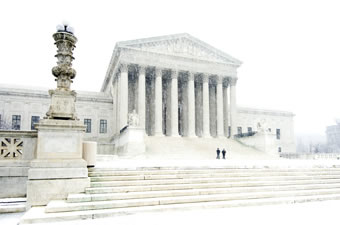 In March, the U.S. Supreme Court will hear oral arguments in two cases that could determine whether life sentences without parole for juvenile killers is unconstitutional cruel and unusual punishment. Attorneys for the two 14-year-olds involved in the cases will argue forensic evidence shows adolescent brains are not fully developed and that teenagers consequently take too many risks, according to The Los Angeles Times.
In March, the U.S. Supreme Court will hear oral arguments in two cases that could determine whether life sentences without parole for juvenile killers is unconstitutional cruel and unusual punishment. Attorneys for the two 14-year-olds involved in the cases will argue forensic evidence shows adolescent brains are not fully developed and that teenagers consequently take too many risks, according to The Los Angeles Times.
"Adolescents, because of their immaturity, should not be deemed as culpable as adults," Temple University psychology professor Laurence Steinberg, who spearheaded the research, said. "But they also are not innocent children whose crimes should be excused."
The high court abolished the death penalty for juveniles in 2005 and ruled in 2010 that life sentences without parole for juveniles were unconstitutional except in cases of homicide.
A ruling by the court may not mean release for many juveniles currently serving life without parole. According to The Times, many would not be eligible for parole until they have served 25 years and even then they would need to “show near-unblemished prison records, true remorse and proof they can function in society.”
Photo by U.S. Supreme Court
Ryan … thank you for keeping us up to date on the news about JLWOP.